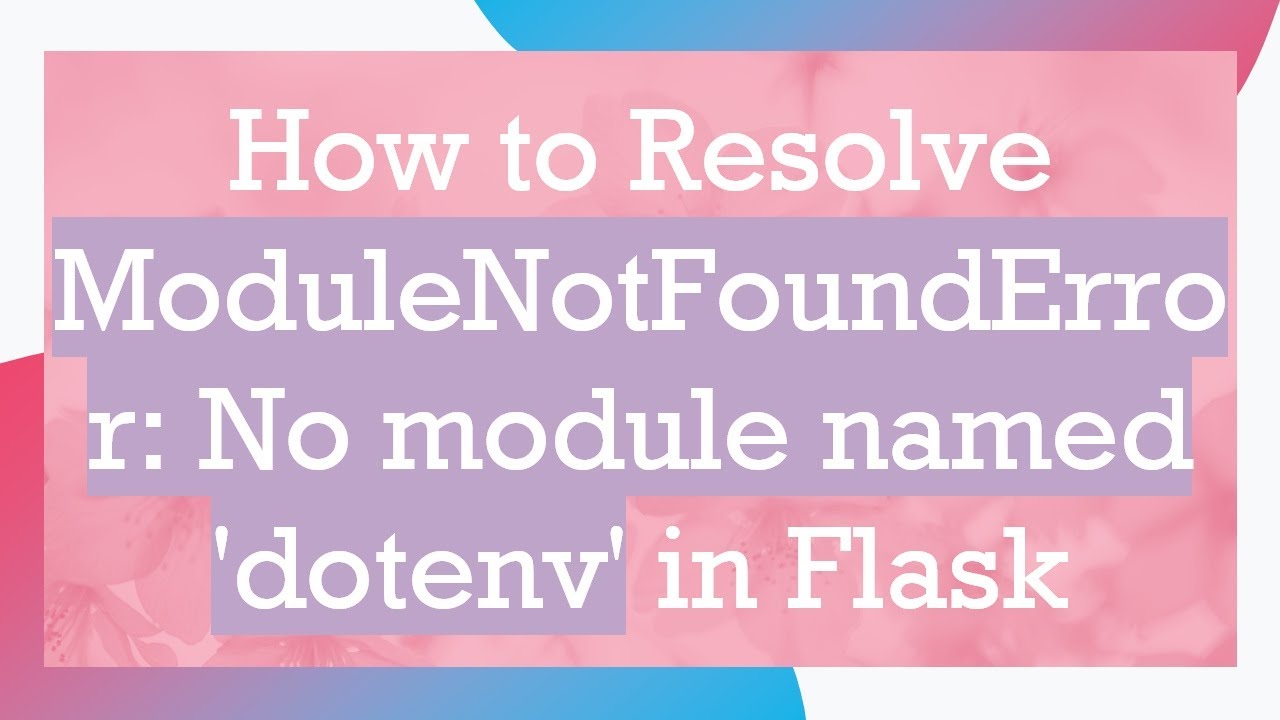How to solve modulenotfounderror no module named ‘azure-mgmt-reservations

In the world of cloud computing, managing and optimizing resources effectively has become a crucial skill for IT professionals. One of the popular cloud platforms is Microsoft Azure, which provides a wide array of services and tools to manage cloud resources. However, during the development and deployment of applications on Azure, users may encounter various errors that can hinder their progress. One such error is ModuleNotFoundError: No module named ‘azure-mgmt-reservations’, which can be frustrating, especially for beginners.
Understanding the Azure SDK and Its Components
Before learning how to resolve ModuleNotFoundError: No module named ‘azure-mgmt-reservations’, it’s essential to understand the Azure SDK (Software Development Kit) and the role of different components within it. The Azure SDK allows developers to interact with Azure services through code, enabling the automation of deployments, resource management, and much more.
What Is Azure Management Libraries?
The Azure Management Libraries include various modules tailored for specific Azure services. These libraries aim to provide developers with the necessary tools to manage resources effectively. Among these libraries, the azure-mgmt-reservations module is specifically designed to manage reservation resources in Azure, such as reserved virtual machines.
By utilizing the Azure Management Libraries, developers can:
- Automate tasks.
- Manage resources programmatically.
- Integrate Azure services into applications seamlessly.
Common Reasons Behind the ModuleNotFoundError
The error ModuleNotFoundError: No module named ‘azure-mgmt-reservations’ typically occurs due to a few common issues. Understanding these can help you troubleshoot effectively.
1. Missing Package Installation
One of the primary causes is that the required package is not installed in your Python environment. This can happen if you forget to install the necessary packages when setting up your project or if you mistakenly delete them later.
To check if the package is installed, you can execute the following command in your terminal:
pip listIf you do not see azure-mgmt-reservations listed in the output, you’ll need to install it.
2. Virtual Environment Issues
Another common issue can be related to the usage of a virtual environment. Developers often create virtual environments to manage dependencies for different projects separately. If you have not activated the correct virtual environment before running your script, Python may not have access to the installed packages.
To activate your virtual environment, use:
source your_env/bin/activateor for Windows:
your_envScriptsactivate3. Version Compatibility
Sometimes, the installed version of the azure-mgmt-reservations module may not be compatible with your existing code or other Azure SDK packages. Check the version of the Python SDK required for your particular use case and ensure that the installed packages meet those requirements.
How to Solve ModuleNotFoundError: No Module Named ‘azure-mgmt-reservations’
Now that we understand why this error might occur, let’s discuss actionable steps to fix ModuleNotFoundError: No module named ‘azure-mgmt-reservations’. Follow these steps to resolve the issue effectively.
Step 1: Installing the Required Package
If you found that the package was not installed, you can easily install the azure-mgmt-reservations module using the following command:
pip install azure-mgmt-reservationsMake sure to run the command in the environment (global or virtual) where your project is set up.
Step 2: Verify Installation
After installation, confirm that the package is successfully added by running:
pip show azure-mgmt-reservationsThis command should display the package details if it has been installed correctly.
Step 3: Update Your Dependencies
If you’ve encountered version compatibility issues, it may be necessary to upgrade or downgrade your Azure packages. Use pip to update as follows:
pip install --upgrade azure-mgmt-reservationsIf there’s a specific version you need, you can specify it like so:
pip install azure-mgmt-reservations==Replace
Best Practices for Managing Azure Dependencies
Managing dependencies effectively is crucial for smooth development and deployment processes. Here are some best practices you can follow:
1. Use a Requirements File
To avoid issues with dependencies in the future, maintain a requirements.txt file in your project. This file lists all the necessary packages along with their versions, ensuring anyone who clones your repo can setup the environment correctly.
You can generate a requirements file using:
pip freeze > requirements.txtTo install from this file, simply run:
pip install -r requirements.txt2. Regularly Update Packages
Stay up-to-date with the latest version of Azure SDK components. Regular updates can resolve bugs and compatibility issues. However, be cautious as updates can introduce breaking changes. Review the documentation for each package before updating.
3. Utilize Virtual Environments
Always use virtual environments for Python projects. This will separate your project dependencies from the global Python environment, minimizing the chance of encountering module-related issues.
Leveraging Azure SDK Documentation
The official documentation for Azure SDK is an invaluable resource. It contains comprehensive guides, usage examples, and API references. Understanding how to use the documentation effectively can greatly enhance your development experience.
1. Getting Started Guides
For beginners, Azure provides getting started guides tailored to various services. These guides often include step-by-step instructions that cover installations and initial configurations. Following these guides can help you avoid common pitfalls.
2. API References
The API references provide detailed information on methods, classes, and parameters. Familiarizing yourself with the API references for azure-mgmt-reservations will enhance your ability to interact with the Azure REST APIs effectively and avoid potential errors.
3. Community and Support
Engaging with the community through forums, GitHub issues, and Stack Overflow can provide additional insights and solutions to common problems. Many developers share their experiences and solutions, which can contribute to your learning process.





